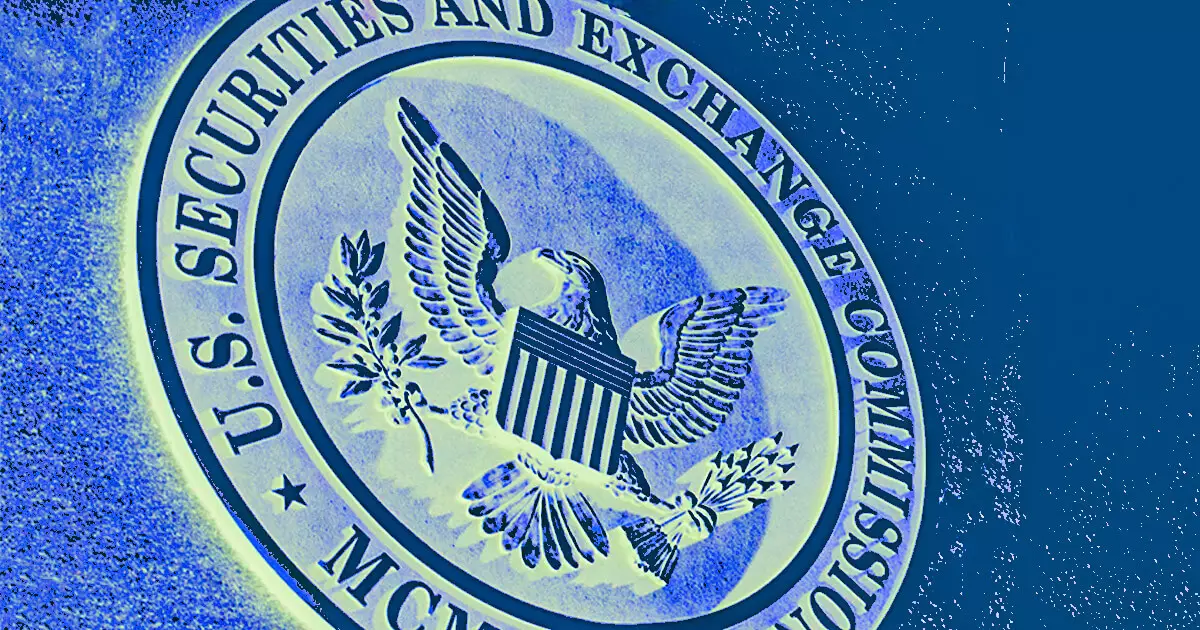The recent enforcement action taken by the Securities and Exchange Commission (SEC) against the Flyfish Club’s non-fungible tokens (NFTs) raises pressing questions about the intersection of emerging technologies and established regulatory frameworks. SEC Commissioners Hester M. Peirce and Mark T. Uyeda have publicly voiced their dissent concerning this case, suggesting that the application of securities law in this instance may not only be misguided but also detrimental to future innovation in the NFT space.
Flyfish Club, a unique dining venture, marketed its NFTs as gateways to exclusive dining experiences rather than as traditional investment vehicles. By selling approximately 3,000 NFTs at prices averaging $8,400, the club raised a substantial $14.8 million, augmented by $2.7 million in secondary sale royalties. Instead of seeing these assets as securities, Peirce and Uyeda characterize them as utility tokens that provide holders with extraordinary culinary experiences, underscoring their unique value proposition.
The SEC’s decision to classify Flyfish Club’s NFTs as securities contradicts the fundamental principles under which these tokens were marketed and sold. Critics argue that the infamous Howey Test, which helps classify assets as securities based on the expectation of profit, fails to apply in this context. Since the primary purpose of the Flyfish NFTs is access to exclusive dining events rather than speculative investment, the application of securities laws appears to be a stretch of regulatory intention.
Peirce and Uyeda cautioned that regulatory actions like these can erode public trust in regulatory bodies, comparing the relationship expected between consumers of fine dining and regulatory authorities to that of a chef and dine-in guests. Their dissent signals significant concerns regarding the more considerable precedent the SEC is setting by expanding its reach into areas traditionally left unregulated.
The SEC’s recent threats toward prominent NFT marketplace OpenSea signal an escalating tension between regulatory agencies and emerging tech markets. A Wells Notice issued to OpenSea indicates possible enforcement actions pending the company’s compliance with regulatory expectations. The marketplace’s CEO, Devin Finzer, has robustly defended the platform, stressing that regulatory scrutiny could inadvertently stifle creativity and innovation within the NFT space, which thrives on artistic and entrepreneurial expression.
In response to these challenges, fintech and crypto advocacy groups like the Stand With Crypto Alliance have emerged, launching initiatives such as the $6 million Creator Defense Fund. This coalition aims to bolster the rights of artists and creators who feel threatened by potential regulatory actions, underscoring the urgency for clear guidelines.
The conflict surrounding the SEC’s enforcement actions illustrates a broader struggle in adapting traditional legal frameworks to the dynamic world of NFTs and blockchain technology. Policymakers, regulators, and industry stakeholders must engage in constructive dialogue to establish criteria that distinguish between securities and utility tokens effectively.
As the digital landscape evolves, providing clear and accessible guidelines for creators and innovators will be essential to fostering an environment where creativity can flourish without fear of unwarranted regulatory consequences. The future of the NFT marketplace hinges on the balance between protecting consumers and encouraging artistic innovation, a balance that regulators must strive to maintain as technology continues to outpace legislation.













